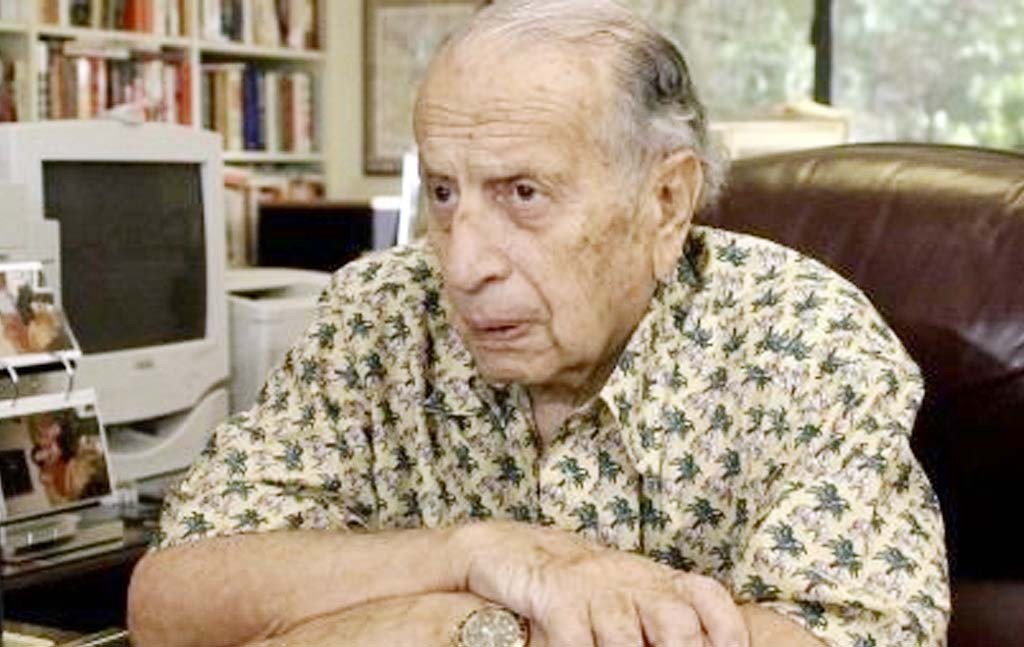
Diplomat, cricket commentator, businessman and author, Jamsheed Marker was arguably Pakistan’s most famous Parsi

Pakistan’s Foreign Office has produced many outstanding diplomats in the last seven decades. Ace diplomats like Sir Zafarullah Khan, Prince Aly Khan, Agha Shahi, Sahabazada Yaqub Khan and Iqbal Akhund have ably represented the country at global forums and attained international recognition. Jamsheed Marker, who passed away last week at the age of 95, not only belonged to this illustrious list but also represented Pakistan’s finest and most civilised.
Diplomat, cricket commentator, businessman, author, academic and philanthropist, Jamsheed Kekobad Marker was from a leading Parsi business family settled in Quetta for decades. He was born in Hyderabad Deccan in 1922. He studied at Doon School in Dehradun, graduated from Forman Christian College in Lahore, served in Royal Indian Navy during the Second World War and won war service medal for displaying courage.
At the time of partition, he was actively involved in his family’s shipping and pharmaceutical business in Quetta. On the eve of independence, Marker attended a party at the Quetta Club where the keynote speech was delivered by the highest ranking native army officer, stationed at Quetta, by the name of Agha Mohammad Yahya Khan, who later became Pakistan’s president and Marker served in his administration as Pakistan’s ambassador in Moscow.
Marker soon moved to Karachi, capital of the newly created country, and came to know the top leadership from Prime Minister Liaquat Ali Khan to all subsequent leaders who succeeded him in the next six decades. In his last book, titled Cover Point: Impressions of Leadership in Pakistan, Marker has recorded his candid impressions about all the rulers of Pakistan whom he saw up-close from Liaquat Ali Khan to President Musharraf.
Marker was among the pioneers of radio cricket commentary in Pakistan in the 1950s, a role he relished performing till mid-1960s when he embarked on his long and distinguished diplomatic career. In the commentary box, he partnered with the inimitable Omar Kureishi, who came to be known as the voice of cricket in Pakistan. Describing legendary opening batsman Hanif Mohammad’s stoic and unflappable batting during a test match, Marker once famously remarked: "since lunch the only thing to unsettle Hanif is the pigeon flying perilously close to his cap."
The turning point in his life came in 1965 when President Ayub Khan’s Foreign Secretary Aziz Ahmad called him and offered the post of Ambassador to Ghana, a newly independent African country. Marker accepted the offer and, as the cliché goes, the rest is history. He went on to serve as Ambassador for the next three decades in 19 countries (out of which nine were accredited countries), thus earning the distinction of the longest-serving Ambassador in the world, a feat acknowledged by the Guinness Book of World Records.
Marker served in some of the most important and toughest capitals of the world at the height of Cold War -- Washington, Moscow, Ottawa, Berlin, Bonn, Bucharest, Tokyo, Geneva, Paris and New York. A polyglot, he was able to converse in English, French, German, Russian, Urdu and his native Gujarati.
He interacted with the most important leaders of the world and impressed them with his professionalism and dutifulness. A generous host and an old-school gentleman, Marker was the consummate diplomat who would disarm his opponents with his charm and convince them with his eloquence. After retirement from diplomatic service, Marker taught at a college in Florida in the United States.
His most important diplomatic assignment was as Pakistan’s envoy to Washington (1986-88) at a time when both sides enjoyed the closest relationship due to peak of Afghan jihad and subsequent withdrawal of Soviet forces from Afghanistan. He worked closely with President Zia and President Reagan during this period and his recollections about both these leaders in his memoir are warm. Among Pakistani leaders, only Benazir Bhutto did not utilise Marker’s services although he was brother-in-law of Happy Minwalla, a close associate of Benazir.
Marker wrote two interesting books about Pakistan. His memoir titled Quiet Diplomacy is a veritable tour de force about world affairs but Marker is tight-lipped about most of the events he witnessed. His second book, Cover Point, based on close-up images and profiles of Pakistan’s various leaders, is more insightful and revealing as Marker gives his blunt opinion about the crisis of leadership in Pakistan. The two most provocative chapters in the book are about Bhutto and Zia, as Marker is very critical of Bhutto and seems to hold Zia in high regard.
In his memoir, Marker recalls with pride the story of inauguration of a mosque in Germany by a Parsi Pakistani Ambassador in Bonn in early 1980s. It seems like a far cry from today’s Pakistan which has become increasingly intolerant towards its minorities in the last four decades.
If Field Marshal Sam Manekshaw was India’s most celebrated Parsi, Jamsheed Marker was Pakistan’s most famous Parsi. Both were well-known to each other and even managed to meet in Moscow’s Bolshoi Theatre just weeks before the outbreak of the 1971 war, when Manekshaw, as army chief, visited India’s main ally Moscow, where Marker was serving as Pakistan’s Ambassador. Both hugged each other warmly and conversed in native Gujarati for some time, thus puzzling their Russian hosts with this open and unexpected display of camaraderie.
The crowning moment of his diplomatic career arrived when Marker was appointed United Nation’s Secretary General’s envoy to East Timor in 1999. His role was acknowledged as instrumental in resolving the crisis and won praise from both sides in the conflict as well as from Kofi Annan, the then UN’s Secretary General.
Well played Mr Marker -- it was a wonderful innings.